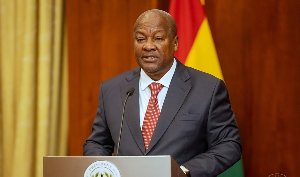Public Interest and Accountability Committee (PIAC) is expressing worry about the thin-spread of petroleum revenues for projects, resulting in paltry allocations.
The Committee said the inadequate funding makes it difficult to achieve any meaningful impact associated with the expenditure.
In an assessment of the management and utilisation of the Annual Budget Funding Amount (ABFA) mechanism over the years, PIAC said the government had been consistent in funding projects in the four priority areas as per the law.
However, actual expenditure normally stretches beyond the 12 listed priority thresholds, it said in an issue paper signed by Mr Noble Wadzah, the PIAC Chairman.
Another worrying trend, it said, is the non-utilisation of, and accounting for, the full ABFA allocation even though the budgetary amount is disbursed into the ABFA account.
“PIAC’s visits to some projects earmarked to receive petroleum revenue revealed that they have been starved of funds at a time when revenues are reported to be unutilised and unaccounted for,” it said in a statement on the launch of an issue paper on the management and use of petroleum revenues.
The Committee also observes that over the years, some International Oil Companies (IOCs) have developed the practice of non-payment and deferred payment of Surface Rentals which is a source of petroleum revenue streams.
This practice undervalues the Ghana Petroleum Holding Fund, and does not comply with the provisions of the PRMA, PIAC said.
PIAC also observed a procedural loophole which allows the Minister for Finance to place a cap on the Ghana Stabilisation Fund (GSF) at his or her discretion as ostensibly necessitated by macroeconomic conditions; albeit with the approval of Parliament.
“To place a cap on how much can be accrued to the Fund, there are no established criteria for the determination of the cap and use of proceeds,” the statement said.
“We note with concern that 10 years into oil, the effectiveness of an Investment Advisory Committee (IAC) is difficult to measure.
It said the country was still stuck to the practice of investing in low qualifying instruments; a practice we believe can be better improved with a well-resourced, functional, and independent IAC.
The statement said PIAC believes that these issues would receive the needed attention among critical stakeholders.
“Mindful of the fact that our country’s resource governance is shaped by the thinking of political groupings (parties) and that these issues be given adequate attention in their manifestoes, policies and action steps,” it said
The understanding is that petroleum is a finite resource, hence the need for effective governance must not be lost on us, PIAC added.
Business News of Wednesday, 19 August 2020
Source: goldstreetbusiness.com













